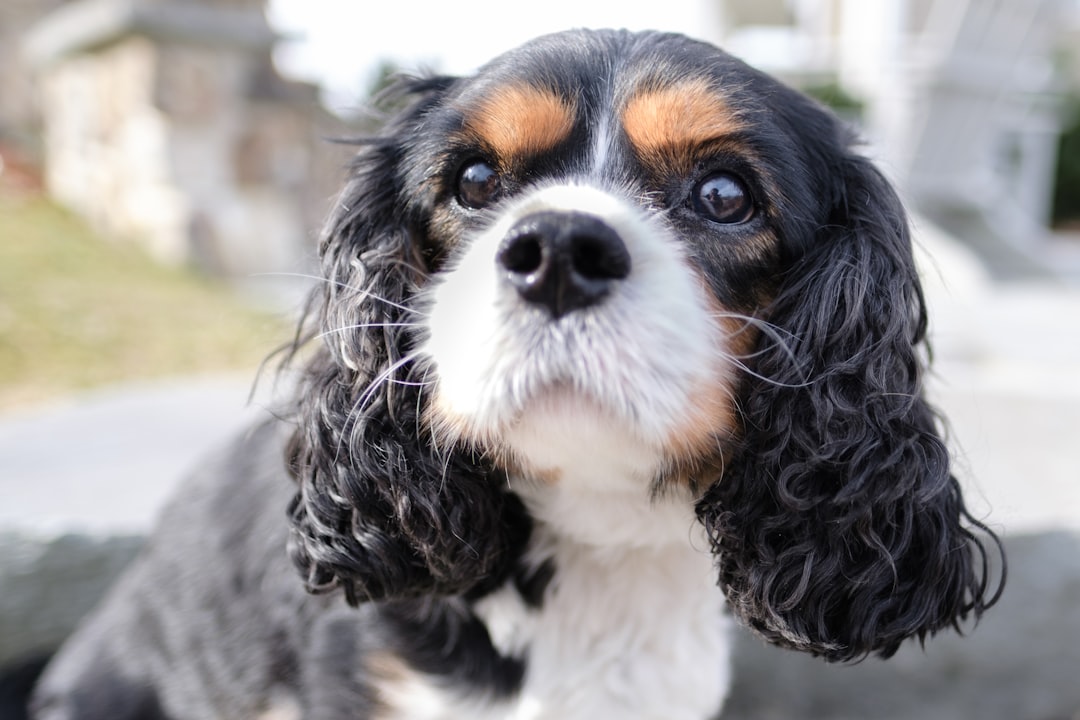Learn about the physical characteristics, coat traits, behavioral traits, health considerations, and important considerations for prospective owners of the Cavalier King Charles Spaniel breed.

Overview of the Cavalier King Charles Spaniel Breed
The Cavalier King Charles Spaniel has a fascinating history dating back to its association with nobles and royals in England. With its regal appearance and noble lineage, the breed has become a beloved companion for many households. Known for its affectionate, active, and family-friendly nature, the Cavalier King Charles Spaniel is a popular choice for families, multi-dog households, and individuals living in various living situations, including apartments. This adaptable nature makes them well-suited for different lifestyles and living conditions, contributing to their widespread popularity.
In terms of physical characteristics, the breed typically stands at 12 to 13 inches in height and weighs between 13 to 18 pounds. Their distinctive silky, wavy coat and feathered features add to their elegant and charming appearance, making them a visually appealing breed. However, potential owners should be aware of the common health conditions that Cavalier King Charles Spaniels are susceptible to, including heart disease, syringomyelia, joint problems, and eye issues. These health considerations underscore the importance of proactive health management and responsible breeding practices to ensure the well-being of the breed.
 Physical Characteristics and Coat Traits
Physical Characteristics and Coat Traits
The physical characteristics of the Cavalier King Charles Spaniel breed are truly captivating. With its silky, wavy coat and distinctive feathered features, it’s no wonder that this breed is often described as regal and sophisticated. For example, the breed’s long, floppy ears and expressive eyes contribute to its charming appearance, making it a beloved choice for many dog owners.
In addition to its coat traits, the Cavalier King Charles Spaniel is known for its distinctive color variations. These variations include red, red and white, and black and tan tricolor, adding to the breed’s overall allure and visual appeal. The unique combination of colors and markings sets this breed apart, showcasing its individuality and beauty.
When it comes to grooming, the Cavalier King Charles Spaniel has specific needs to keep its coat in optimal condition. Regular brushing and occasional professional grooming are essential to maintain the breed’s elegant coat. This grooming routine not only ensures the dog’s physical appearance but also contributes to its overall well-being, as it allows for the early detection of any skin issues or abnormalities.
Behavioral Traits and Adaptability
The Cavalier King Charles Spaniel is renowned for its friendly and amiable nature, making it an ideal companion for families and multi-dog households. These dogs are not only affectionate but also patient, traits that contribute to their suitability for households with children and other pets. For example, their patient demeanor allows them to interact well with young children, making them excellent family pets. Their adaptability to different living situations, including apartment living, stems from their moderate exercise needs and ability to thrive in indoor environments. Additionally, their playful tendencies and sporty nature enable them to engage in various activities, making them delightful companions for individuals with active lifestyles.
Moreover, Cavalier King Charles Spaniels exhibit a remarkable ability to adapt to different weather conditions, whether it’s the cold winters or hot summers. This adaptability adds to their versatility as pets, allowing them to comfortably acclimate to diverse climate settings. Their sociable nature also extends to their interactions with other dogs, making them well-suited for multi-dog households. This behavior showcases the breed’s overall affable and congenial temperament, contributing to their popularity as companion animals. These traits make them an excellent choice for potential owners seeking a dog that can seamlessly integrate into their family dynamics and living arrangements, demonstrating the breed’s adaptability and social nature.
Health Considerations and Care
Cavalier King Charles Spaniels are beloved for their affectionate nature and charming appearance, but they are susceptible to certain inheritable health conditions. Heart disease, particularly mitral valve disease, is prevalent in the breed, and proactive health management is essential to address this issue. Additionally, syringomyelia, a condition affecting the spinal cord, can occur in Cavalier King Charles Spaniels, emphasizing the need for potential owners to be aware of these health considerations.
Joint problems and eye issues are also common health concerns for this breed. Joint problems, such as hip dysplasia, can affect their mobility and overall comfort, while eye problems, including cataracts and retinal issues, can impact their vision and quality of life. As a result, responsible breeding practices play a crucial role in minimizing the occurrence of these health conditions, underscoring the importance of acquiring Cavalier King Charles Spaniels from reputable breeders who prioritize the overall health and well-being of the breed.
In addition to genetic predispositions, the breed’s susceptibility to certain health conditions underscores the significance of providing a high-quality and appropriately portion-controlled diet to prevent obesity and maintain overall health. Regular exercise, tailored to the individual dog’s needs, is also vital for their physical and mental well-being. Thus, potential owners should be attentive to the breed’s health requirements and ensure proactive health management to support the longevity and vitality of their Cavalier King Charles Spaniels.
By being mindful of these health considerations and embracing responsible care practices, prospective owners can contribute to the well-being and longevity of this cherished breed, ensuring a fulfilling and healthy life for their Cavalier King Charles Spaniels.
Considerations for Prospective Owners
When looking to bring a Cavalier King Charles Spaniel into your home, it’s crucial to prioritize identifying reputable breeders who are committed to the health and well-being of the breed. Responsible breeders play a significant role in maintaining the breed’s temperament, minimizing the risk of hereditary health conditions, and preserving the overall quality of the Cavalier King Charles Spaniel.
Furthermore, prospective owners should recognize the breed’s suitability for various living situations, including first-time dog owners, families, and individuals residing in apartments or houses. Their adaptable nature and gentle temperament make them well-suited for different environments, and their affectionate disposition allows them to thrive as cherished companions in a variety of household settings.
Additionally, it’s essential for potential owners to familiarize themselves with the unique needs and considerations associated with the breed. Understanding the grooming requirements, exercise needs, and potential health issues specific to Cavalier King Charles Spaniels is crucial for providing them with a happy and healthy life. By acknowledging these aspects, individuals can make informed decisions about whether the breed aligns with their lifestyle and capabilities, ensuring a harmonious and fulfilling relationship between the owner and their Cavalier King Charles Spaniel.
Frequently Asked Questions (FAQs)
- What are the typical physical characteristics of the Cavalier King Charles Spaniel breed? The typical physical characteristics of the Cavalier King Charles Spaniel breed include a regal appearance, silky, wavy coat, and distinctive color variations such as red, red and white, and black and tan tricolor.
- What is the history and lineage of the Cavalier King Charles Spaniel? The Cavalier King Charles Spaniel has a rich history associated with nobles and royals, originating in England and dating back to the 16th, 17th, and 18th centuries in northern Europe.
- What are the common health conditions that Cavalier King Charles Spaniels are susceptible to? Cavalier King Charles Spaniels are susceptible to common health conditions such as heart disease, syringomyelia, joint problems, and eye problems, necessitating proactive health management.
- How much exercise do Cavalier King Charles Spaniels require? Cavaliers require regular exercise to maintain their overall health and well-being, typically needing around 30 minutes of exercise per day.
- What are the grooming needs of the Cavalier King Charles Spaniel breed? The breed requires regular brushing and occasional professional grooming to maintain their elegant coat and overall appearance.
- Are Cavalier King Charles Spaniels suitable for first-time dog owners? Yes, they are suitable for first-time dog owners, families, and individuals living in various housing arrangements, given their adaptable and affectionate nature.
- What are the ideal living conditions for Cavalier King Charles Spaniels? Cavaliers are adaptable to various living situations, including apartments, and different weather conditions, making them versatile companions.
- What are the behavioral traits and temperament of Cavalier King Charles Spaniels? They are known for their playful, affectionate, and patient nature, making them suitable for families and multi-dog households.
- How can potential buyers identify reputable breeders when getting a Cavalier King Charles Spaniel? Potential buyers should prioritize identifying reputable breeders to ensure the overall health and well-being of Cavalier King Charles Spaniels and avoid potential challenges related to backyard breeders and puppy mills.
- What are the considerations for adopting a Cavalier King Charles Spaniel from a rescue organization? When considering adoption, it’s essential to understand the breed’s unique needs, lifestyle requirements, and potential health considerations, emphasizing the responsibilities and joys of owning a Cavalier King Charles Spaniel.
